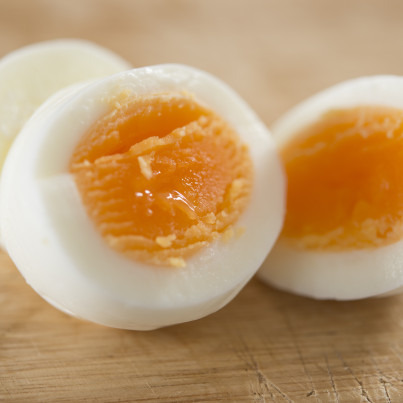Why English Eggs Are Way Different Than American Ones
Posted:
Updated:
One basic, important food that the English do right is eggs. English eggs look and taste very different from American ones. The yolks are more orange and they taste slightly richer. They also taste fresher and more flavorful than your average American factory farm egg. (We're not talking free range, organic eggs, but the kind that come from chickens stacked in tiny cages.) English eggs are so different than American ones that American eggs would actually be illegal in the UK -- or anywhere in the EU -- and vice versa.

The USDA doesn't see it that way. They're concerned with the potential of fecal matter making it from the farm onto the egg, which, being a porous object, could transfer micro-organisms inside the egg. Eggs in the United States must be washed in water a minimum of 90°F. They must then be sprayed with a chemical sanitizer and dried to remove residual moisture that might enable bacteria to penetrate the egg shell. If any moisture is left on the egg, the potential for bacteria is much higher. The U.S. cleaning methods must be followed closely in order for them to work. With such a high risk of bacteria if cleaned improperly, the UK believes cleaning is more trouble than it's worth, Forbes explains. Careless cleaning would be worse than no cleaning.
There is also a thin layer called the cuticle that naturally protects the egg, and the EU egg marketing regulations prohibit cleaning eggs in order to keep the cuticle intact. The cuticle protects from contamination and should be left on, they say.

Finally, there is the concern of salmonella -- in the U.S., we are instructed to keep eggs in temperatures lower than 40°F because it decreases the risk of salmonella from spreading. In the UK, salmonella isn't a widespread concern because British farmers have been vaccinating their hens against salmonella since the 1990s. While the "drop in salmonella infections in Britain was stunning," according to the New York Times, the FDA has not yet mandated vaccination here in the U.S. Vaccination isn't required by law by in UK either, but necessary if farmers want the red stamp of approval denoting their hens have been vaccinated.

沒有留言:
張貼留言